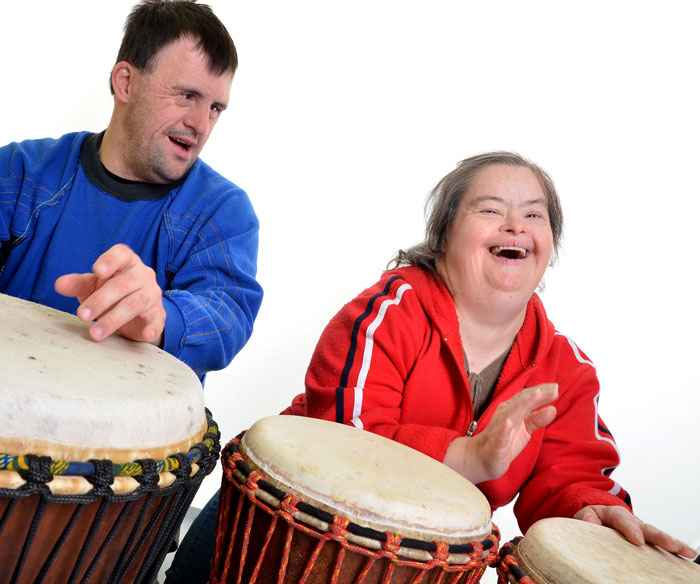
“Beethoven once said, “Music can change the world.” Considered one of the greatest composers of all time, Beethoven was able to create incredible masterpieces despite being completely deaf. Instead of giving up his love for music as his hearing loss accelerated, he persevered and continued to produce amazing works that are still enjoyed and admired by people all over the world, even 200 years later.” [1]
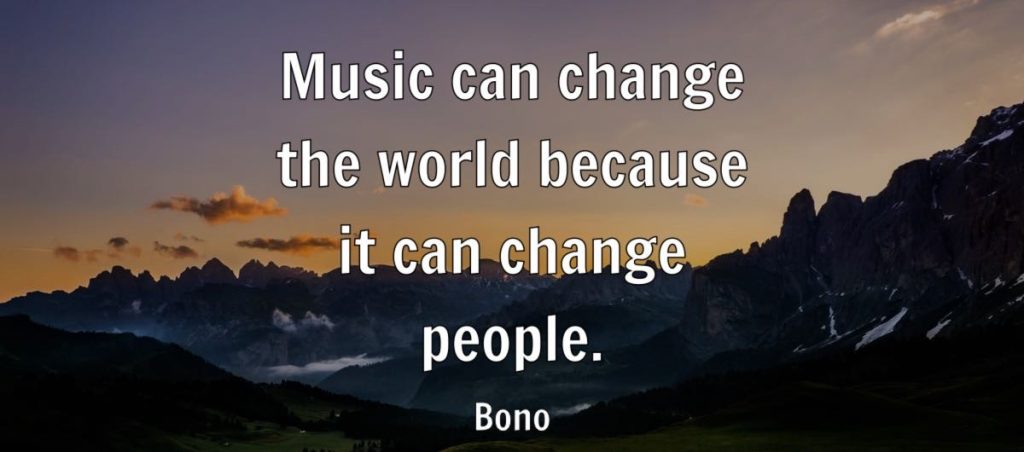
“Music is a powerful thing. It can make your happy when you’re sad and arouse memories of particular times, places and moments that you thought you’d forgotten.
But, for people living with physical and intellectual disabilities, music can be an even more powerful thing, helping them to respond and engage with activities through music.
Music therapists are finding that the sounds and rhythms of music can calm people with a disability, boost their happiness, and even increase their confidence and communication in social situations.” [2]

“Therapies manager at Music Beat, Kate Fletcher, runs programs for children and adults with disabilities through community organizations and schools.
She said music therapy was able to help people of all ages accomplish goals by incorporating music that they reacted to into a session.” [2]

“According to the American Music Therapy Association, individuals with mental health needs, developmental and learning disabilities, brain injuries, and physical disabilities can all benefit from music therapy.
Research has shown that music therapy can:
- Increase verbalization
- Provide motivation
- Enhance self confidence
- Reduce agitation and anxiety
- Decrease muscle tension
- Improve relationships
- Instill group cohesiveness
- Increase happiness
Music therapy can also improve heart rate, stimulate the mind, and enhance learning.” [1]
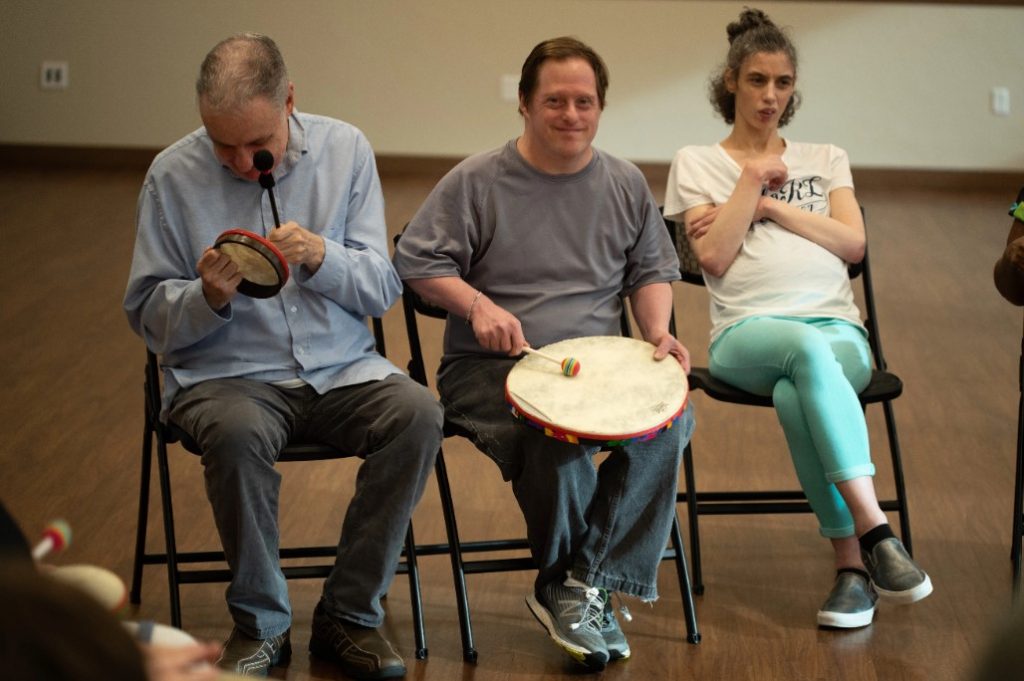
What are the effects of music therapy?
“Music reaches us. Music comprehension is intricately linked to emotional brain functions, so music can trigger a wide range of responses well beyond the scope of simple musical enjoyment.
Also, music creation is a physical experience, which can have beneficial input for people who may live with motor function challenges. This can be achieved by a therapist and the client by practicing range of motion, hand-grasp strength, and forms of no-verbal expression.
Similarly, musical involvement is a multi-sensory act, which may provide distraction from the pain discomfort, and anxiety often associated with some physical disabilities.” [3]
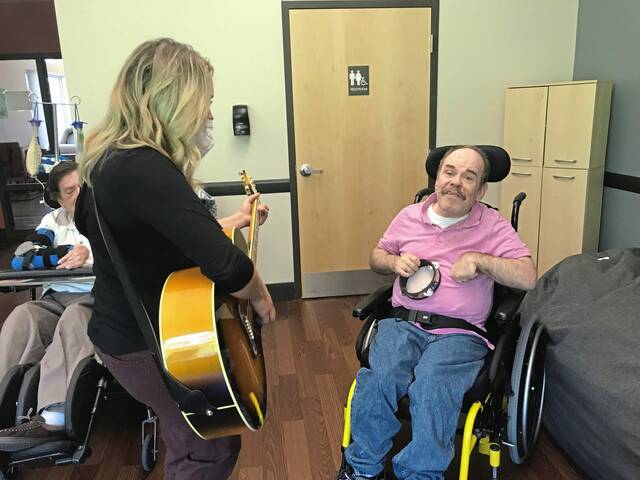
Which conditions can music therapy assist with?
The full range of conditions and their respective benefits from music therapy are too large to describe fully in this article, but below is a list of conditions known to be helped by music therapy, and we will focus on a few major ones in order to give more detail:
- Alzheimer’s Disease
- Autism Spectrum Disorders
- Brain Injuries
- Childbirth and Neonatal Care
- Children with Emotional Disorders
- Community Mental Health
- Dementia Care
- Developmental Delay
- Geriatrics
- Hearing Impaired
- Mental Health
- Mentally Challenged
- Pain
- Palliative Care
- Personal Growth
- Pervasive Developmental Disorders
- Physical Disabilities
- Schizophrenia
- Stress Management
- Substance Abuse
- Voice
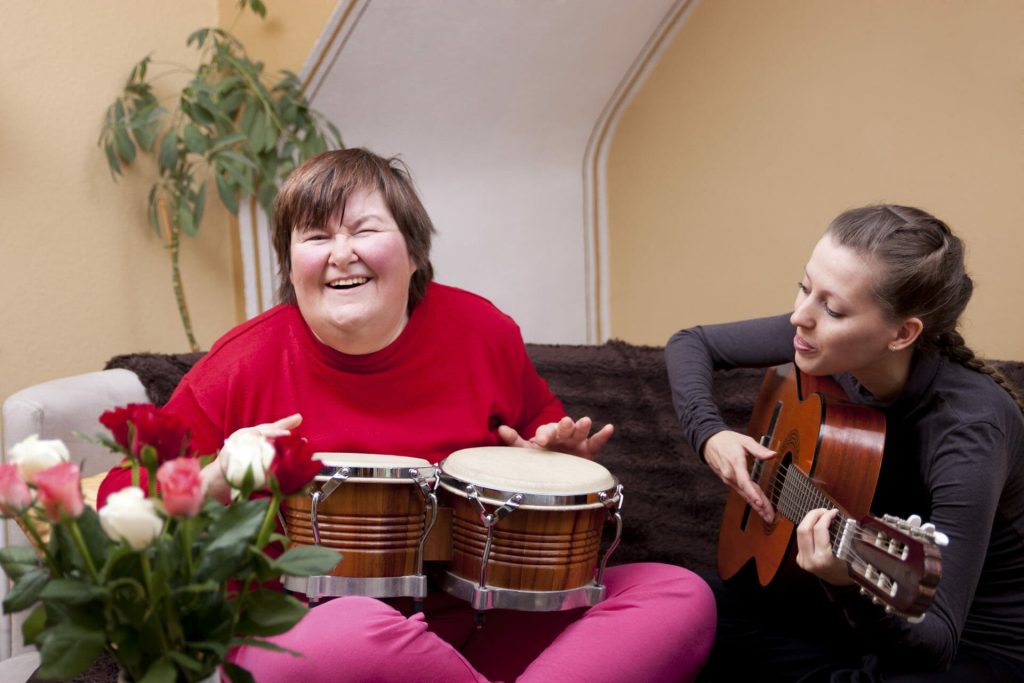
How does music therapy help physical disabilities?
“Music therapy has been successful as a therapeutic intervention for persons with physical disabilities. It has been used with persons, of all ages from preschool to late adulthood and with many types of disabilities whether congenital or adventitious. Music therapy may play an important role in developing, maintaining and/or restoring physical functioning.
Because music is reinforcing, it can be used to motivate movements or structure exercises which are prescribed in physical rehabilitation. Involvement in music may provide a distraction from the pain discomfort, and anxiety often associated with some physical disabilities.
Music therapy techniques-have been used to develop and maintain joint and muscle function or to increase fine and gross motor coordination and control, increase muscle strength, increase range of motion, improve cardiopulmonary and respiratory functioning, improve oral-motor skills, facilitate relaxation and controlled movement, as well as provide an outlet for emotional self-expression and provide opportunities for social interaction.” [4]
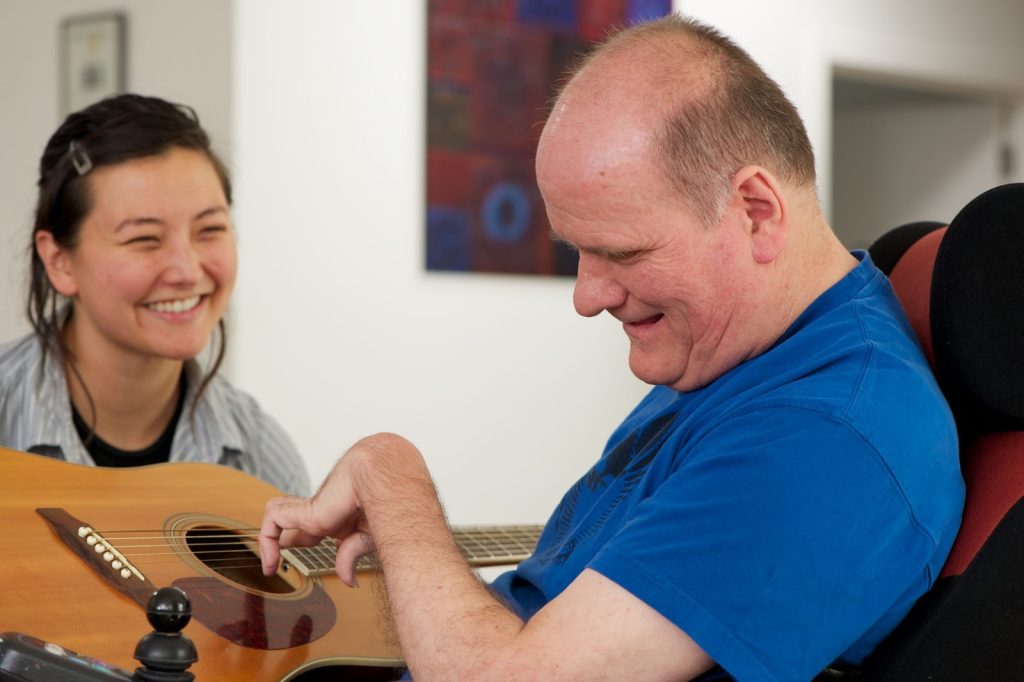
Music can also lead to a professional career for people with disabilities.
Businesses that are dedicated to music and art create opportunities for people with a disability to achieve their dream careers as singers, instrumentalists, actors or performers.
“The Arts Endowment seeks to address barriers and advance training and career opportunities in the arts for individuals with disabilities– in the strong belief that inclusion must be ever present in our vision and that all Americans have the opportunity to create and participate fully in the arts.
To know more about it: https://www.semel.ucla.edu/
A resource, information and training center dedicated to promoting the full inclusion of persons with disabilities into the visual-, performing-, literary-, and media-arts communities.” [5]

More Resources:
[1] https://evergreenls.org/music-therapy-benefits-people-with-disabilities/
[2] https://musicbeattherapy.com.au/
[4] https://www.mtabc.com/what-is-music-therapy/how-does-music-therapy-work/physical-disabilities/
[5] https://www.arts.gov/impact/accessibility/careers-in-the-arts-for-people-with-disabilities
